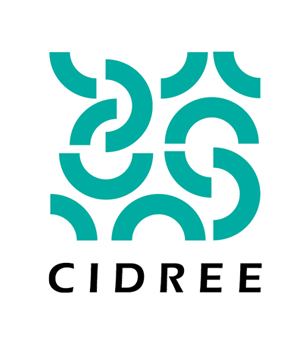CIDREE IS THE CONSORTIUM OF INSTITUTIONS FOR DEVELOPMENT AND RESEARCH IN EDUCATION IN EUROPE. IT IS A SELF-MANAGING NETWORK OF EDUCATIONAL BODIES THAT PLAY A RECOGNISED NATIONAL ROLE IN THE FIELD OF CURRICULUM DEVELOPMENT AND/OR EDUCATIONAL RESEARCH.
CIDREE was set up in 1990 with a view to establishing closer working relationships among European educational systems.
CIDREE is run by the members, for the members.
Mission of CIDREE
The mission of CIDREE is:
- to contribute to the quality of the member institutions through mutual linking and sharing high – level knowledge and experience
- to shape CIDREE as an influential, dynamic and responsive network that supports the individual and corporate interests of its members
- to represent the interests of the member institutions in other European and international organisations and networks
General aim of CIDREE: knowledge management through networking
As a network, CIDREE wants:
- to ensure the mobilisation and circulation of high level knowledge and information amongst the member institutions, contributing to a more effective realisation of their own mission
- to make new knowledge, generated by collaboration, available to the member institutions and other stakeholders.
Added value
The CIDREE strategy is based on the simple idea that the exchange of information and expertise among professional educators gives added value to their own activities in terms of knowledge, efficiency, effectiveness and the growing European dimension of educational research and development.
Key functions of the member institutions
All CIDREE members play a key role in national curriculum development, reform and assessment and/or educational research. The main task of most members is providing policy advice to their ministries, generally coupled with providing guidance and advice on policy implementation to schools. All members are involved in formal, compulsory education. We work for young people through educational professionals.
In addition, members also perform other duties such as monitoring, developing national qualifications, assessment and/or examination programs, developing classroom materials, playing a role in teacher training and in-service training, and conducting educational research.
Activities
CIDREE organises activities such as study visits, one-off events and meetings of experts in order to stimulate the sharing of information and experiences.
CIDREE also organises international collaborative projects that function as tools for research and development. These collaborative projects are initiated by the members and encourage them to coordinate research, compare curriculum approaches and develop mutually beneficial results.
Professional development of staff
Engagement in CIDREE activities contributes to the advancement of knowledge, experience and expertise. Members are encouraged to take advantage of these opportunities when planning their staff development programmes. The institutions bring to CIDREE their own particular activities, questions, needs and expectations and in return can benefit from comments, answers, ideas and materials.
In this way CIDREE ensures the mobilisation and circulation of high-level knowledge and information amongst its members.
How CIDREE works
The Annual General Assembly under supervision of its elected president decides on the strategic plan and the admission of members. The GA also elects the Board, sets the annual fee and makes policy decisions.
The Board under supervision of its elected chairman puts forward the topics to be discussed and agreed by the General Assembly. It implements resolutions and looks after the interests of CIDREE during the periods in between the meetings of the Assembly.
The National Coordinators Meeting plays a key role in engaging the member institutions in the CIDREE network by defining particular needs for collaboration. Each member institution is represented by a National Coordinator.
The Secretariat is responsible for the administrative and financial operations and has publicity and organisational tasks. Furthermore, the secretariat is responsible for programme coordination, the promotion of communication and contacts among institutions, the promotion of CIDREE as a knowledge network in relation to external institutions, and the support of the design of a long-term policy and annual plan of activities. The secretariat is the first point of contact for potential new members.
Finances
All members pay an annual fee, which covers
- the costs of the funding of collaborative projects and other activities
- the administrative management costs of CIDREE
- the costs of CIDREEs website
- the costs of the meetings of the General Assembly, the Board and the National Coordinators Meeting
Public relations and communications
CIDREE’s main PR and communication tool is the CIDREE website: www.cidree.org. The website contains information on CIDREE members. Furthermore, information is exchanged between CIDREE members and national coordinators about collaborative projects and the activities of member institutions as well as other bodies and institutions. Also, the results of collaborative projects are published on the website.
CIDREE’s newsletter, CIDREE Brief, contains information about forthcoming activities, events and seminars. It also covers developments in member institutions, new projects, etc.
Information
If you are interested in CIDREE activities, please contact the CIDREE administration:
secretariat(at)cidree.org
www.cidree.org
Board
President: Ingrid Vanhoren (Belgium)
Past President: Jindra Divis (Netherlands)
Incoming President: Arlene Forster (Ireland)
Secretariat
Christine Stadnick Frédérickx
Swiss Coordination Centre for Research in Education
Entfelderstrasse 61
5000 Aarau
Switzerland
Phone +41 62 858 23 90
Fax +41 62 858 23 99
secretariat(at)cidree.org
Bye-Laws
CIDREE Amended Bye-Laws 2021 (PDF)
CIDREE Past Presidents
CIDREE Past Presidents (PDF)
